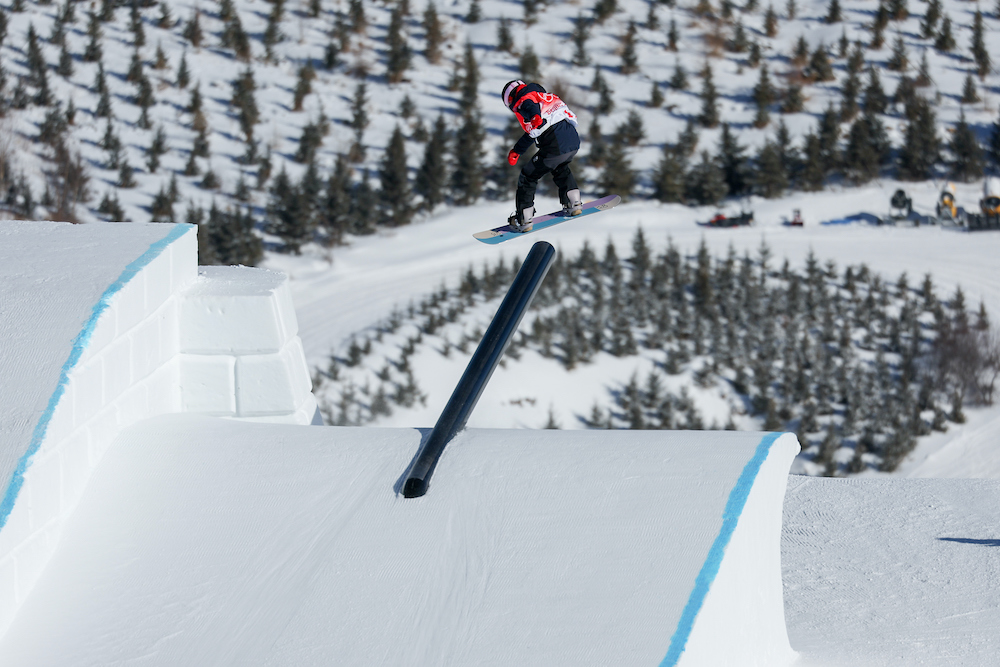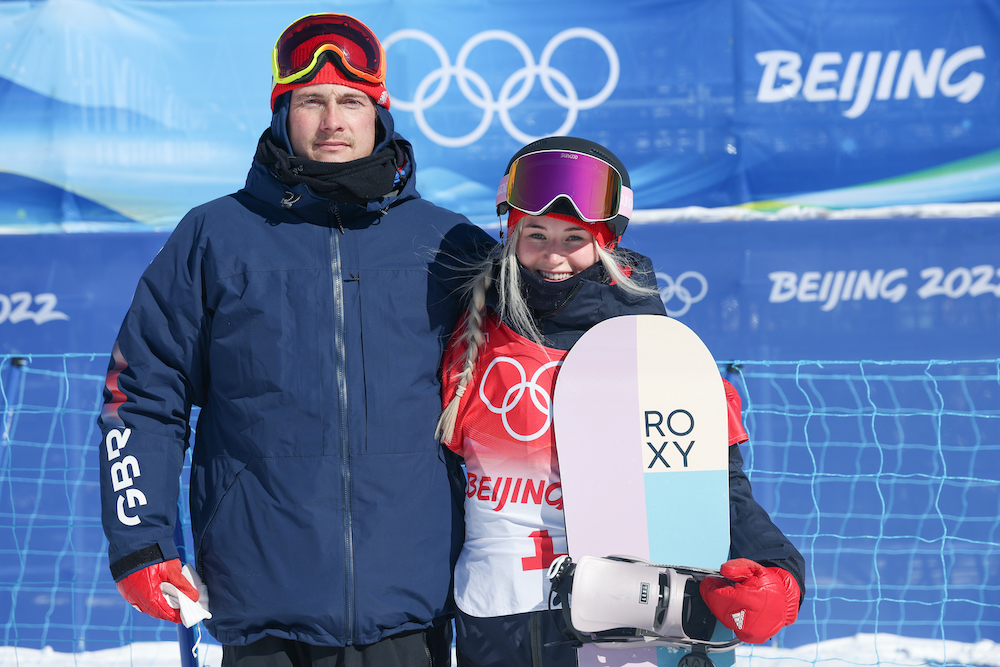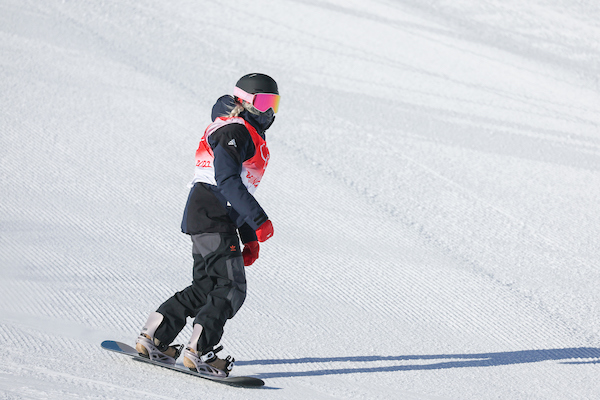The Olympic Winter Games Beijing 2022 are in full swing, and we’re proud to partner with Team GB.
To get warmed up, we’re exploring what Team GB athletes like Katie Ormerod – the world’s first female snowboarder to land a double cork 1080 – can teach businesses about resilience, life-long learning, the power of data, and more.
Katie started snowboarding at the age of five. She’s gone on to take British snowboarding to the next level and was the first British snowboarder to win the overall World Cup Slopestyle title and Crystal Globe in 2020. But Katie’s story is also one of resilience in the face of a life-changing injury – her path to success was never an easy ride.
Ahead of her long-awaited debut at Beijing 2022, we asked Katie about her remarkable recovery and success, and how data played a key role in her recovery.
Get up and go – resilience and commitment
In 2018, Katie qualified for her first-ever Olympic Winter Games – and then tragedy hit.
Just two days before the competition, she fell off a rail and broke her heel bone in two places. It took seven operations and a full year of rehab before Katie could return to the slopes competitively.
But if there’s one thing that defines Katie’s attitude, it’s resilience. A keen life-long athlete, she has had to balance her love of the sport with life’s obligations to achieve her goals.
“Resilience has always been a big part of my personality and motivation,” says Katie. “For as long as I can remember, I’ve always wanted to succeed, no matter what I’m doing, whether it was at school or with my training.”
From a young age, Katie showed impressive commitment – even taking her mock GCSE exams while training to compete in America. But her horribly-timed injury in 2018 would present her biggest challenge yet.
“It was such a freak accident,” says Katie. “I just had to accept it instantly and be like, ‘Okay, it wasn’t meant to be this time. I have to move forward.’”
The resilience that had served Katie so well all her life would prove vital on her path to recovery, but like many of the businesses we work with, Katie and her trainers are no strangers to using data visualisation to get optimal results.

© Team GB | Sam Mellish
Using data to drive positive change
“In snowboarding, judges often change how they score your performance, but there is a pattern to their expectations,” says Katie. “We use video analysis to help me see how I can make my landings as clean as possible, or my jumps higher, so I can play to their criteria and squeeze a few more points out.”
But Katie’s accident meant data took on a new purpose – aiding her recovery.
“We used a lot of data during my physio,” says Katie. “When learning to walk again, you need to have a certain amount of flex in your ankles, so we’d physically measure and record the distance.”
By using data to help measure her progress, she honed in on even the smallest gains each day, giving her a positive attitude to growth and recovery.
“Data was really important because I knew that, physically, I wouldn’t be able to walk unless I got to a certain point,” she says. “But seeing those little wins add up helped. So I could see that doing one more rep in the gym was one step closer to my goal. Mentally, that helped a lot.”
When combined with Salesforce, visualisation tools like Tableau can help you translate data into actionable insights. And by democratising access to easy-to-use dashboards, you can rally everyone around a single source of truth, driving productivity through measurable gains. Through Salesforce partnership with Team GB, we have created a number of Winter Sport visualisations with Tableau, check out one of our viz’s here on Freestyle Skiing, to understand just how skiers balance speed, technique and tricks to land the biggest score!

© Team GB | Sam Mellish
Love what you do – and embrace new life lessons
Katie’s love for snowboarding is infectious. And the joy she feels on her board drives her to perform at her best.
“When I did get back on my board, I wasn’t scared as I knew I’d put the hard work in during rehab,” she says. “I was so relieved and excited to finally be back doing what I loved, and when I’m having the most fun, the results always come from that. I think that mindset helped make my comeback season my best yet.”
It’s a sentiment shared by many business decision-makers too. If you equip your teams with the right tools and insights, you can help remove the friction that causes stress and hurts performance. In turn, people enjoy their jobs more and reflect that in their work.
Katie also places an emphasis on continuous learning. During rehab, she became more interested in the climate emergency and the changes she’d witnessed first-hand across many of her favourite snow resorts.
“I became vegetarian and took a carbon literacy course,” says Katie. “I want to try and do everything I can. Things need to change, and I want to keep learning more to help make that happen.”
Salesforce is committed to continuous learning and upskilling. We developed Trailhead an online learning platform that makes it easy for anybody to learn in-demand skills, earn credentials, and connect with a global community of learners. We believe it makes continuous learning easy, and for business owners, it’s an ideal way to learn more about the climate crisis and the changes you can make to achieve sustainability.
More inspiring content from Team GB
Exceptional athletes like Katie Omerod have so much to teach businesses about resilience and change. And that’s one reason why we’ve partnered with Team GB.
To find out more about what our partnership involves (and to pick up more Olympian tips for success), take a look at our Team GB partnership page now.








